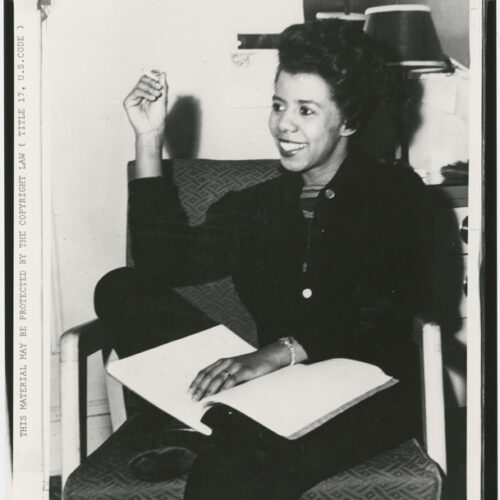

I wish to live because life has within it that which is good, that which is beautiful, and that which is love. Therefore, since I have known all of these things, I have found them to be reason enough and —I wish to live. Moreover, because this is so, I wish others to live for generations and generations and generations and generations.
Lorraine Hansberry, addressing fellow writers, 1 March 1959
Lorraine Hansberry’s 1959 play A Raisin in the Sun was the first drama by a black woman writer to be performed on New York’s Broadway. It won her the New York Drama Critics’ Circle award, making Hansberry the youngest and first black recipient of the prestigious honour. The groundbreaking playwright and civil rights activist was also a humanist, who used the semi-autobiographical character of Beneatha Younger to express the very human frustration of a deity being given credit for the achievements of human beings. The European premiere of A Raisin in the Sun took place at Bristol’s Hippodrome on 20 July 1959, directed by Lloyd Richards. It subsequently ran at the Adelphi Theatre in London’s West End.
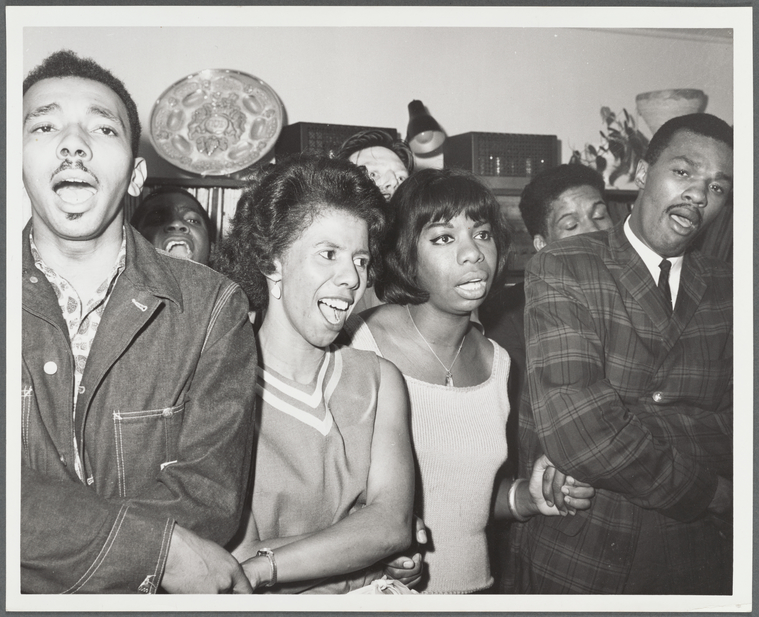
Lorraine Hansberry was born in Chicago on 19 May 1930, the youngest of four children born to Nannie Louise and Carl Augustus Hansberry – both active supporters of the National Association for the Advancement of Colored People (NAACP). Hansberry moved to New York City in 1950, and the following year began working on the newspaper Freedom, alongside fellow freethinker and activist W.E.B. Du Bois. Herself a civil rights activist and outspoken advocate of racial equality, Hansberry would write in 1962 that:
The acceptance of our present condition is the only form of extremism which discredits us before our children.
Letter to Kenneth Merryman, 27 April 1962 in To Be Young, Gifted and Black (1970)
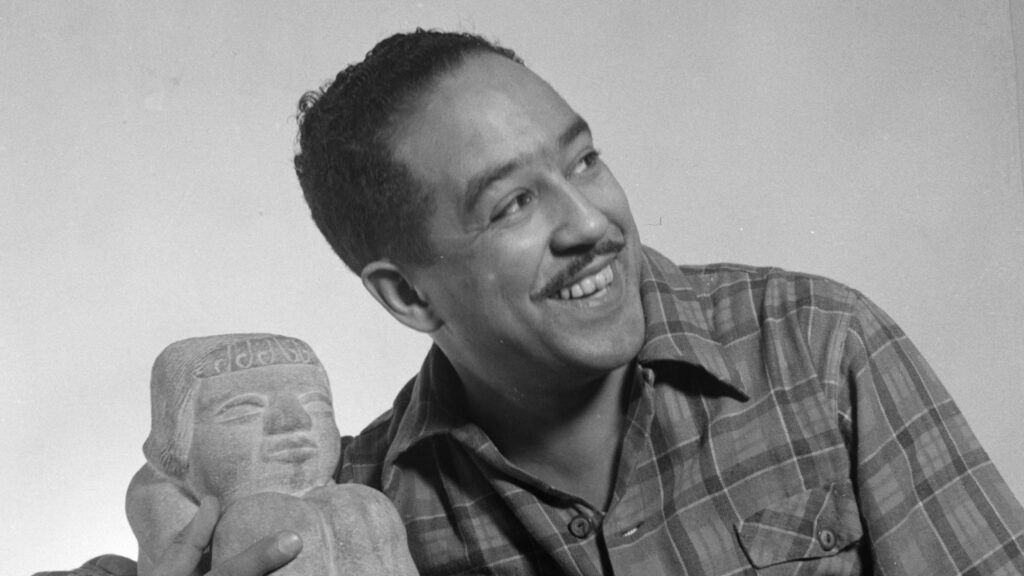
A Raisin in the Sun took its title from the poem ‘Harlem’ by Langston Hughes, which asked:
What happens to a dream deferred?
Does it dry up
like a raisin in the sun?‘Harlem’ by Langston Hughes (1951)
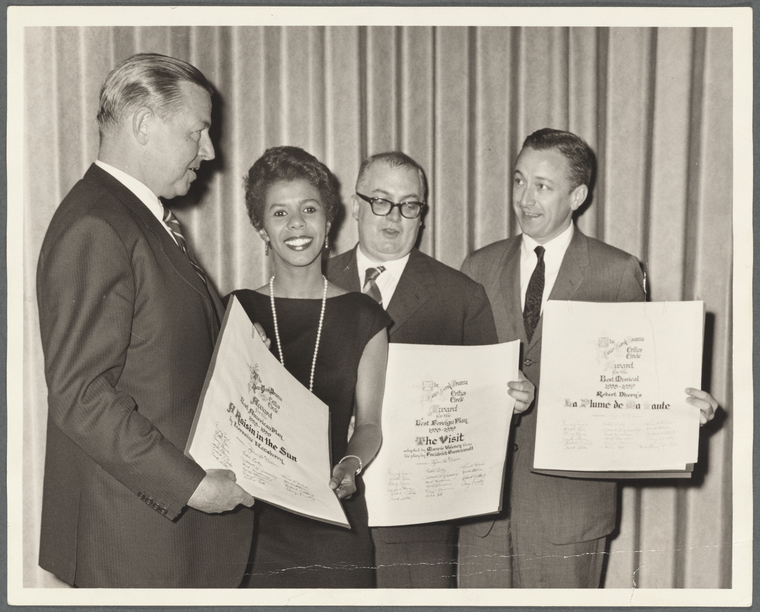
The play centred on an African American family in Chicago, their efforts to improve their standard of living, and the racial discrimination they faced. While the mother, Lena Younger (or Mama) is devoutly religious, her independent-minded daughter Beneatha presents a humanist counterpoint, arguing that human beings are responsible for their own achievements.
Mama (Kindly): Course you going to be a doctor, honey, God willing.
Beneatha (Drily): God hasn’t got a thing to do with it.
Mama: Beneatha—that just wasn’t necessary.
Beneatha: Well—neither is God. I get sick of hearing about God.
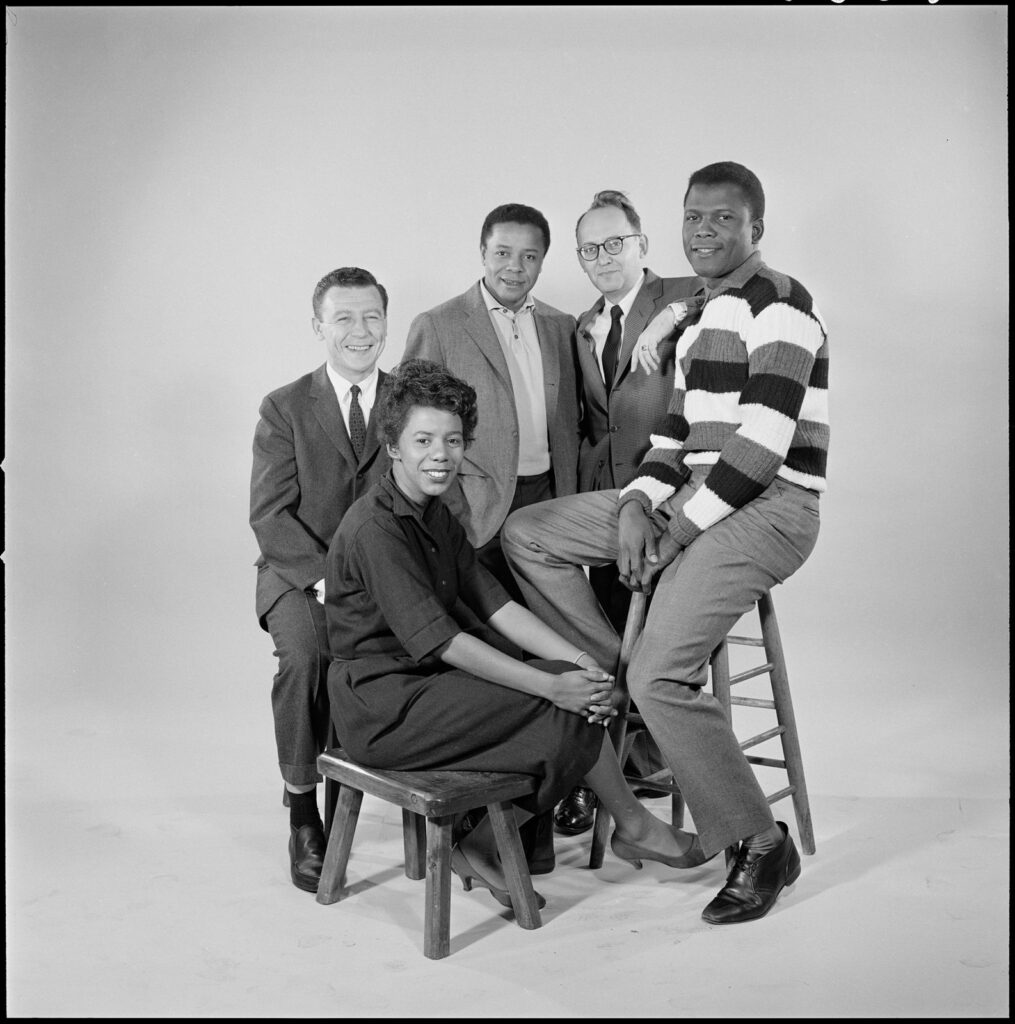
Hansberry herself spoke of her belief that ‘we don’t need mysticism to exalt man. Man exalts himself by his achievements … and his power to rationalize… his power to reason!’ Into Beneatha’s mouth, Hansberry also put a sentiment which many fellow activists for freedom of speech and belief would echo:
I also see that everybody thinks it’s all right for Mama to be a tyrant. But all the tyranny in the world will never put a God in the heavens!
The first UK run of A Raisin in the Sun, which began in Bristol before its West End debut, showcased an Anglo-American cast. This included American actors Juanita Moore and Olga James as Lena and Beneatha Younger, Welsh actor (Gwilym) Meredith Edwards, and South African actor Lionel Ngakane, who lived in exile in the UK for four decades during apartheid. Speaking to The Stage at the time of the play’s production in England, Lloyd Richards – who had also been the first black director of a Broadway play – described A Raisin in the Sun’s ‘humanity and broad interest’. He noted that although it was ‘a very intimate play… the implications are large’.
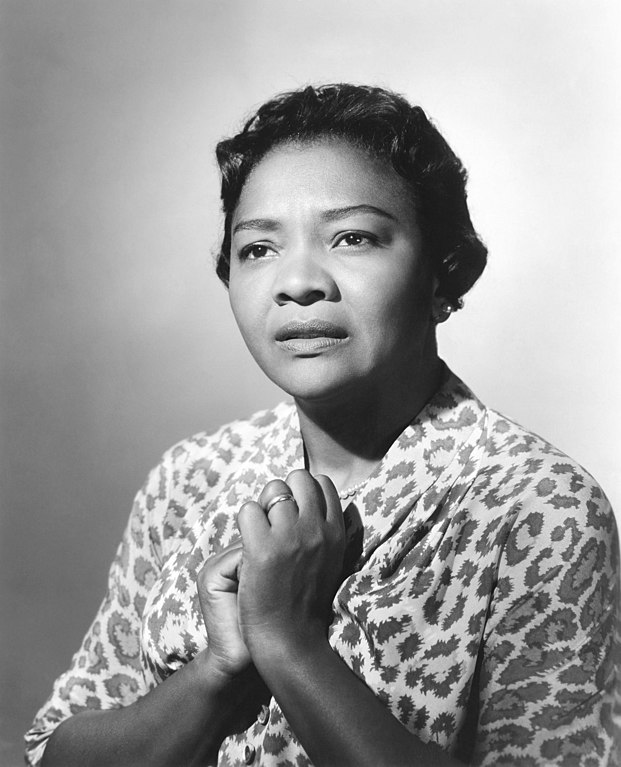
In an interview in 1959, Juanita Moore, using the language of the time, described the impact of an acclaimed play focusing on black lives, and showcasing black actors. She said:
This play is a landmark. To me it is the finest of all Negro plays because it deals with life and character as they really are, without propaganda or treating the story as if it should be taken in a special way. There are wonderful parts in the play which are giving Negro actors and actresses wonderful chances. Its success in New York and the warm reception it had when it opened at the Adelphi, prove that the public are ready to take a real interest in serious plays about coloured people.
I think this is tremendously important because it means that coloured artists gain a dignity equal to others in the theatre—and in the theatre everyone should be equal. Of all places, to me the theatre should be completely free and open to everyone with talent. But it has taken a long time for coloured people to win proper recognition there… when a serious play is written and attracts the public, other workers are persuaded to see the Negro in a new light and write about him accordingly.
‘Negro characters and players are coming into their own…’ by R.B. Marriott, The Stage, 13 August 1959
This power to change was inherent to the play’s writing and its performance. In his introduction to To Be Young, Gifted and Black: Lorraine Hansberry in her Own Words, Hansberry’s posthumously published autobiography, fellow humanist writer James Baldwin wrote:
Lorraine made no bones about asserting that art has a purpose, and that its purpose was action: that it contained the “energy which could change things.”
Despite dying of cancer at 34, just six years after A Raisin in the Sun was first staged, Hansberry’s debut play nevertheless had a profound influence on American and British literature and music in the decades that followed, from contemporaries like Baldwin and the singer Nina Simone through to 21st century authors such as Zadie Smith. Today the play is regarded as part of an essential canon of 20th century black humanist literature, alongside major works by Zora Neale Hurston, James Baldwin, and Richard Wright.
Lorraine Hansberry is one of four humanist women featured in a set of Humanist Heritage stories and activities for schools: Think for Yourself, Act for Everyone.
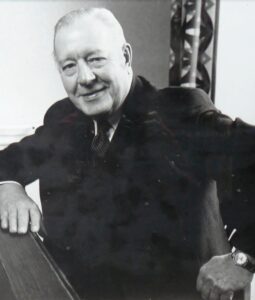
Without this mutual trust and dependability amongst people who differ radically, there cannot be political and religious freedom. H.J. Blackham […]

I count religion but a childish toy,And hold there is no sin but ignorance. Christopher Marlowe, The Jew of Malta, […]
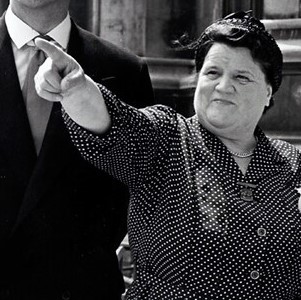
Bessie Braddock was a trade union activist and politician, who devoted her life to improving the lives of others. She […]
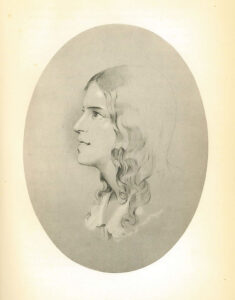
Eliza Flower was a composer, a radical, and a significant influence on William Johnson Fox and the progressive values of […]